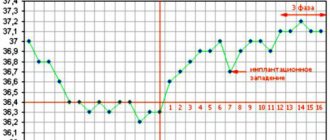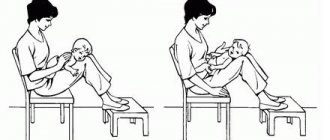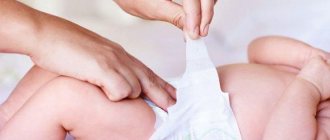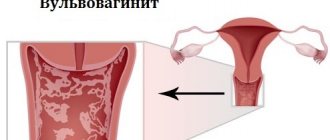Compliance with the rules of intimate hygiene for girls from an early age will help protect the child from serious gynecological diseases, as well as disorders of the formation of the reproductive system in the future. Marina Pavlovna Chernysh, an obstetrician-gynecologist at the clinic for children and a teenager at the “SM-Doctor” in Maryina Roshcha, spoke about what rules of intimate hygiene must be followed at different stages of girls’ development. Each stage of development of a girl’s reproductive system occurs with its own unique anatomical and physiological characteristics that must be taken into account. Maintaining intimate hygiene and the absence of inflammatory and infectious processes will help ensure the normal physiological development and formation of the girl’s reproductive system.
Depending on age, there are different hygiene rules for:
- newborns;
- infants;
- preschool children;
- school age children.
Newborn hygiene
The delicate and sensitive skin of the perineum of a newborn girl requires gentle but regular and thorough cleansing.
To avoid contamination, irritation and infection, you must adhere to the following rules: Every time you change diapers (change diapers), wash thoroughly: carefully under running water, from front to back. Do not use soap every day (including products designed specifically for intimate hygiene), as the alkali they contain has a degreasing effect and leads to dryness and irritation of the skin. The use of potassium permanganate is unacceptable. Diapers are changed when soiled, but at least once every 4 hours. To wash children's clothes, use only baby soap or special baby powders. Choose diapers that retain urine and stool well. Use skin care products. To maintain hygiene, it is also recommended to adhere to natural breastfeeding, regularly clean the room, and change linen.
Products for children's hygiene
The modern market is simply replete with various hygiene products for newborn girls. But can everything be used when caring for a baby? When choosing funds, be guided by the following criteria:
- do not use regular soap - only special baby soap;
- Children's hygiene products must maintain a natural pH level, preserve the natural microflora of the genital organs, have a sign recommended by pediatricians, be hypoallergenic, and do not contain dyes or fragrances.
In addition, it is unacceptable for a girl to share hygiene items with her mother or sister: towels, soap and cotton pads should belong only to her. And the use of such disposable diapers, hated by grandmothers, not only makes life easier for the mother, but also protects the baby from diseases of the genitourinary system if the mother uses them for their intended purpose: walking or sleeping, but nothing more. The first days of life In the maternity hospital, the girl is cared for by medical staff. It’s good if the mother and child are staying in a general ward - the nurses can simultaneously teach this art to the new mother. For the first few days, there may be a layer of light gray or cream-colored substance on the skin, including the folds of your daughter's labia. This is vernix - original lubricant. Neonatologists do not recommend washing it off - it nourishes and protects the newborn’s skin from external influences and many infections. But if there is a lot of plaque, it is better to remove the excess, because the fat contained in the lubricant will oxidize and become an excellent breeding ground for microbes. Cleaning should be done with cotton wool soaked in warm boiled water (t ≤ 37 °C, test it on your wrist) or sterile oil. In no case should you try to clean it at once - act delicately, and the plaque will disappear in a couple of days.
Hygiene for infant girls
Hygiene for infant girls (up to 1 year) is carried out in the same way as during the newborn period, however, care for the external genitalia should be even more thorough.
During this period, the child’s barrier (protective) function of the genital mucosa decreases, as a result of which various microorganisms freely enter the vulvar mucosa, penetrate the vagina and cause an inflammatory process. With improper or insufficient hygiene, infections can be transmitted to a girl through household means. And this, in turn, is fraught with complications, one of which is synechia (fusion) of the labia minora. The main task during this period is to prevent diaper dermatitis (an inflammatory process of the skin in the area of contact with the diaper). To avoid this, it is important to ensure that the child is not in wet diapers for a long time. Up to 12 months, it is recommended to apply a cream containing dexpanthenol under diapers.
Hygiene for preschool girls
The hygiene of girls of preschool age (up to 7 years) also requires special attention.
It is at this age that the largest percentage of inflammatory processes in the external genitalia is observed. During this period, the following rules should be adhered to: Until 5-6 years of age, washing is performed by the mother using a shower or jug, from front to back. Use soap no more than twice a week. From the age of three, it is possible to use a special liquid soap for intimate hygiene of girls every day. Underwear must be changed daily. Be sure to teach your child to use toilet paper after each trip to the toilet. In the hot season, regardless of age, you need to bathe your baby every day, and in winter - once every 2-3 days. It is important that the child has individual towels that are washed separately.
You should also pay attention to the child’s timely trips to the toilet, because constant overflow of the bladder and intestines also increases the risk of developing inflammatory diseases of the external genitalia.
Intimate hygiene for girls
Intimate hygiene for girls
Parents carefully protect the health of children. Recently, the topic of girls’ intimate health has become more and more relevant. Let's talk about girls' intimate hygiene.
Hygienic procedures in childhood are needed not only to prevent inflammatory processes in the genital organs of girls, but also to prevent gynecological diseases and disorders of the formation of functions of the female body in the future. It is important for parents to instill in their girls the need for hygiene procedures from birth. But modern mothers often either go too far in matters of intimate hygiene and want to achieve sterility in the girl’s intimate area, or, on the contrary, they neglect the rules of hygiene and let everything take its course. They themselves do not care for the girl and do not teach her the rules of personal hygiene - this leads to diseases such as vulvovaginitis, synechiae, vulvitis. But in everything you need to know when to stop, and in this matter, the main thing is not to overdo it.
How to properly carry out intimate hygiene for girls in order to maintain her health and avoid negative consequences in the future?
◾under the age of 1 month, it is not recommended to use any special detergents (at this time, mother’s estrogens are still circulating in the blood of children, they protect the genitals from infections).
It is enough to wipe the skin of the genital organs with warm running water and remove dirt with a cotton swab. ◾wash the child with movements from the pubis to the anus (so as not to bring microorganisms from the rectum into the vagina, there should not be any there). ◾wash with running water, human body temperature. ◾washing is carried out carefully, without violence or friction. ◾It is mandatory to wash after each act of defecation; it is permissible to first remove the remains of feces with a damp cloth or cotton swab. ◾ Mom’s hands should be clean, with short nails. ◾ after washing, do not put on a diaper right away, let the butt and not only take “air baths”. Or dry the skin by applying a hygroscopic diaper (forced wiping is contraindicated). ◾it is possible to use wet wipes if there is no access to water. Wipes must be alcohol-free, antiseptic-free, and fragrance-free. ◾liquid soap with neutral ph can be used a month after birth (before puberty, use liquid soap intended for children under one year old - and you can’t go wrong in terms of safety).
◾no bar soaps, washing with potassium permanganate, or douching. It is forbidden. ◾apply soap only to the skin; it should not get on the mucous membrane of the girl’s genital organs. ◾the toilet of the intimate area can be completed by applying a thin layer of peach oil or baby cream to the skin of the genitals and groin folds. ◾moderate dusting with baby powder protects the skin from chafing with a diaper. But excessive powdering with poorly dried skin leads to the formation of crumbs that injure the epidermis with the subsequent development of an inflammatory reaction. ◾newborns should be bathed daily, for 5-10 minutes. During the hot season, you should bathe every day, regardless of age. In winter, after a year, you can do it every other day. ◾change diapers as they get dirty, but at least every 4 hours. Be sure to immediately before or after feeding, after each bowel movement, before bed, after waking up, before a walk. ◾It is important for parents to wash their hands after changing a diaper. ◾use soap for intimate hygiene maximum once a day, preferably 2-3 times a week. ◾children's underwear should be made of cotton/linen. White. Girls from 2 years old are recommended to change their panties 3-4 times a day, from 6 years old - once a day. ◾from the age of 4, it is advisable to teach a girl to carry out procedures related to intimate hygiene herself. ◾toilet paper should not be hard. ◾wash underwear at maximum temperature, separately from adult clothing, rinse thoroughly. Wash with baby powder. ◾for playing in the sandbox and traveling on public transport, wear leggings and panties. The rest of the time, clothing should be loose, not too tight or tight. ◾it is necessary to ensure that the girl does not take small objects with her to bed (to avoid getting them into the vagina). ◾sleep at night without panties, in loose pajamas or a shirt.
With the onset of menstruation, you need to wash yourself 2 times a day, change pads and tampons regularly. ◾tampons are allowed to be used by virgins and they do not lead to disruption of microflora and defloration. It is better to start with a minimum diameter of 12 mm, then select depending on the amount of menstrual flow. Change every 4-6 hours. During menstruation, you should not lie down all the time, not move, and stay at home. This is not true. During this period, you should lead a normal lifestyle and not give up morning exercises. ◾Parents are obliged to tell the teenage girl about the symptoms of inflammatory processes in the genitals and their causes. Tell in detail about STIs, their prevention (including condoms).
If they can’t do it themselves (they are embarrassed or don’t have a trusting relationship in the family), take them to a gynecologist and ask the doctor to tell everyone about it. As a rule, the authority of the doctor in such matters is much greater than that of mom and dad. And remember, the more actively you care for a girl’s genitals, trying to wash everything there and make it clean, the more likely she is to have problems with the onset of sexual development.
In case of problems (itching, burning, rashes, suspicious discharge), self-treatment with any folk remedies or local pharmacological preparations is unacceptable! Only a doctor, after the necessary examination, can prescribe treatment.
Take care of your girls and be healthy!
An obstetrician-gynecologist, Alesya Vasilievna Baranova, was with us.
- Date of publication: 07/26/2019
- Advice from a gynecologist
Hygiene for school-age girls
Hygiene for a school-age girl requires strict adherence to the daily routine, as well as daily hygiene procedures.
A teenage girl should pay special attention to personal hygiene during menstruation. It is necessary to teach the girl to perform hygiene with a shower every time after a bowel movement using a special liquid soap for intimate hygiene. Carry out washing twice a day: in the morning - with water, in the evening - using a special liquid soap for intimate hygiene. During menstruation, washing with a special liquid soap should be done in the morning and evening. Changing pads during menstruation should be done at least once every 2-3 hours.
Published on the portal detstrana.ru
Features of intimate hygiene of a baby in the first days
Due to their anatomical features, girls' genitals are more vulnerable, more susceptible to infection and irritation. The vagina is absolutely sterile during the first three months, later it will be populated by beneficial lactobacilli and form its own microflora, and the mucous membranes are still thin and tender and are easily injured. In this regard, the intimate hygiene of a newborn must be very careful.
Often, in the first time after the birth of a baby, parents notice the presence of a white or grayish coating in the area of her genital organs, but there is no need to be scared at all. These are remnants of the original lubricant; it is a natural barrier that protects the vagina of a newborn girl from various bacteria and microbes. Over time, the mucus will disappear on its own; it cannot be removed by force. If the plaque is very dense, you can carefully remove it, but this should be done delicately and in several approaches, using boiled water and a cotton swab. After 2-3 days everything should disappear.
It happens that some girls experience spotting in the first few days of life; there is no reason to panic here either. The phenomenon is explained by the hormonal changes that occur in the baby’s body after birth. During this period, it is worth washing the newborn more often and changing her diapers.
Purulent discharge (sometimes accompanied by an unpleasant odor) and redness in the perineum of a newborn girl may be a reason to consult a doctor. In this case, you should not hesitate; you should quickly show the baby to a pediatric gynecologist.








